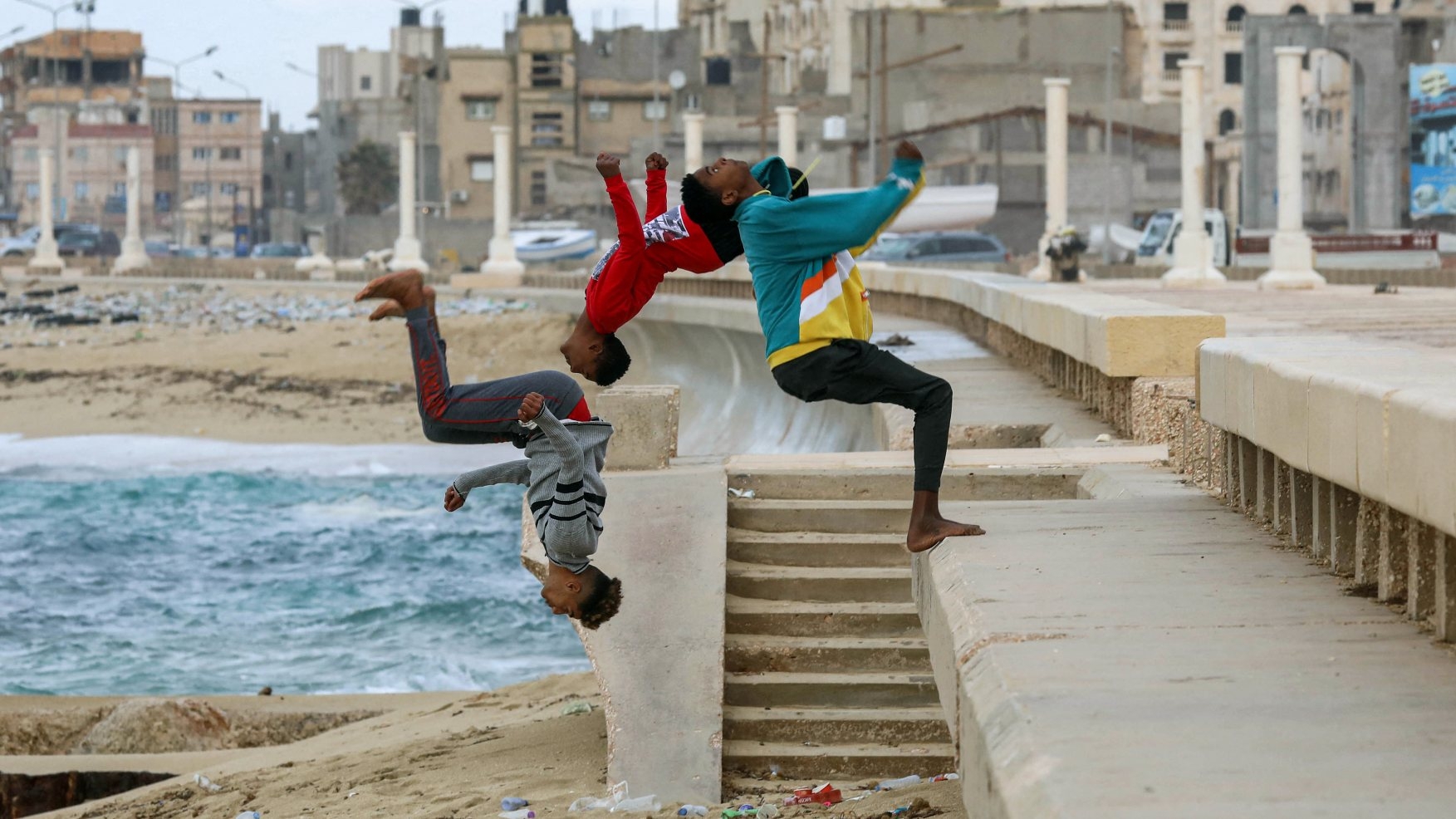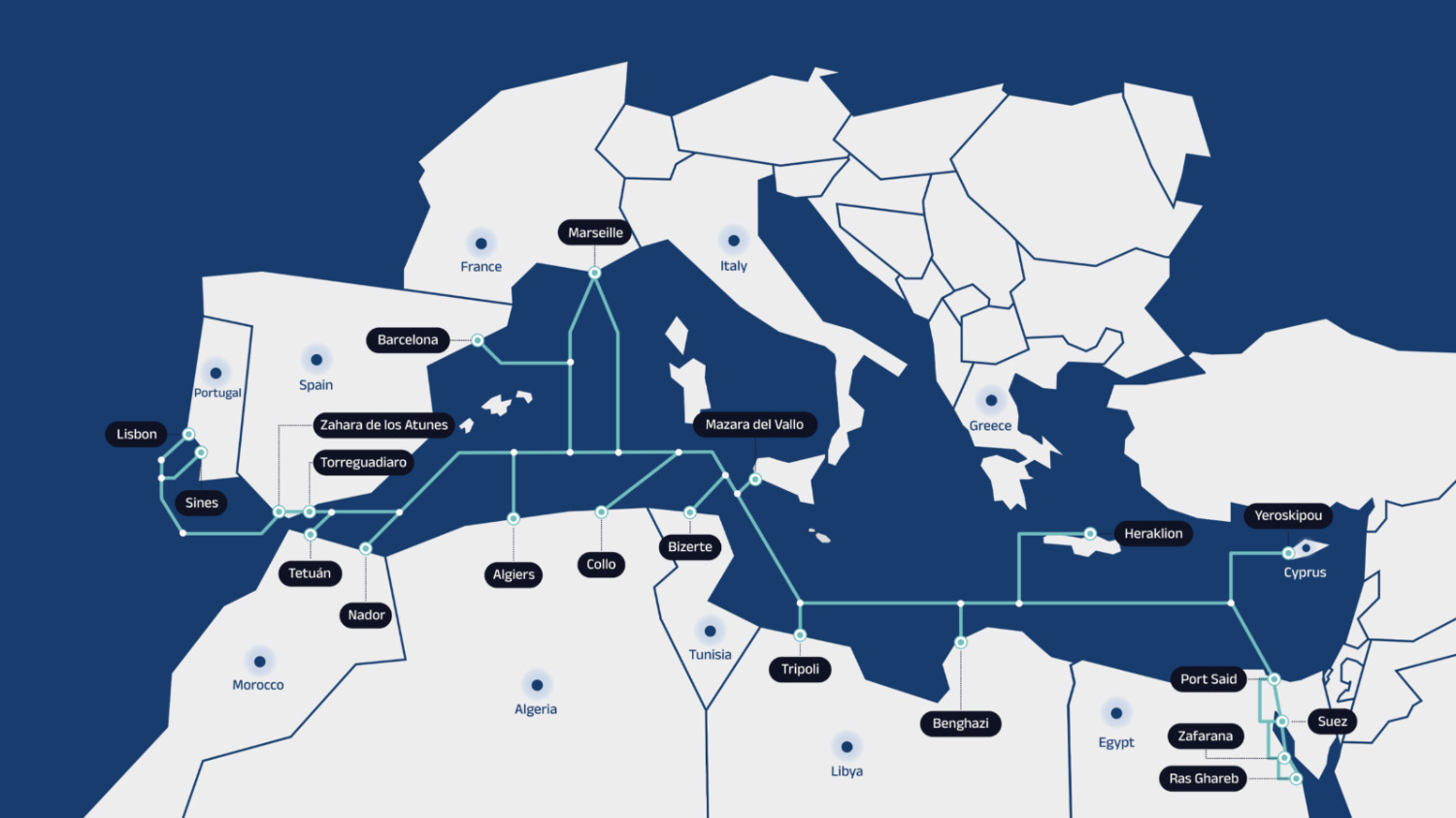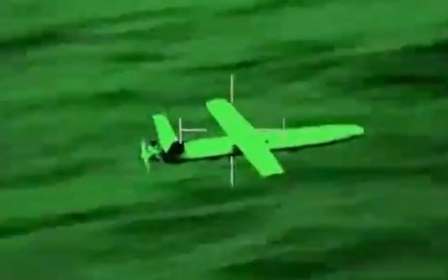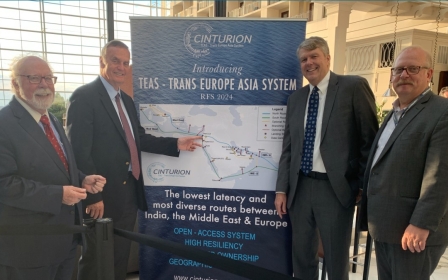New Mediterranean cable set to bring 5G internet to North African countries

North Africa has long been a backwater in the Mediterranean submarine cable sector, with no single cable providing internet connection to all of the countries along the sea's southern shoreline.
But this is set to change with the imminent launch of a new cable - known as Medusa - linking southern Europe with North Africa and potentially onwards through Egypt to Asia.
Industry analysts say the 8,700km subsea cable, which is slated to be operational in the eastern Mediterranean in 2025, and in the west by 2026, is a necessary infrastructure development as internet usage surges in the region.
While at one end of North Africa is a major cable hub for traffic between Europe and Asia, and Morocco at the other end is well connected to Europe and West Africa, the three countries in between - Algeria, Tunisia and Libya - are largely dependent on connections to ageing cables that lack capacity to handle increased bandwidth.
The project is also ambitious because of the geopolitical, diplomatic and economic obstacles it aims to overcome.
New MEE newsletter: Jerusalem Dispatch
Sign up to get the latest insights and analysis on Israel-Palestine, alongside Turkey Unpacked and other MEE newsletters
Algeria severed relations with neighbouring Morocco in 2021, while the border between the countries has been closed since 1994 because of longstanding tensions over the status of the disputed territory of Western Sahara.
Libya has been in a state of civil war for the past decade, with the country still divided between rival administrations in the east and west.
Regional cooperation to improve telecommunications and economic development has also been stymied by instability in the wake of the "Arab Spring" revolutions and uncompetitive telecom markets.
North Africa has one of the lowest rates of inter-regional trade in the world, at just 2.4 percent between the five countries, according to UN trade figures.
'These are big markets if you look at the broadband and internet subscriber base, generating between a quarter to a third of all of Africa’s data traffic'
- Guy Zibi, founder, Xalam Analytics
Multiple projects announced over the years that were slated to improve connectivity, from the Trans-Maghreb Highway to a high-speed railway from Morocco to Algeria and Tunisia, have never materialised.
The Arab Maghreb Union (AMU) has also not been a vehicle for cooperation over its 35-year history, with the Moroccan king recently lambasting it as “dysfunctional”. The last AMU summit of heads of state was 30 years ago in 1994.
Demand for the internet, however, has barrelled along, driven in part by the region’s youth accounting for nearly half of the 212 million population.
“These are big markets if you look at the broadband and internet subscriber base, generating between a quarter to a third of all of Africa’s data traffic. It’s a significant base, but is well controlled, kind of ring-fenced by a small number of telecom providers,” said Guy Zibi, founder of Xalam Analytics.
With no prospect of inter-regional cooperation to develop a submarine cable through a private consortium - the most common business model in the global cabling industry - a European Union-backed cable developer stepped into the void.
“The Southern Mediterranean, having been quiet for a long time in the submarine cable sector, was suddenly lit up three years ago [by the announcement of the Medusa cable]. EU funding has definitely played a part in that,” said Julian Rawle, a US-based submarine fibre-optic cable consultant.
The EU’s $320 billion Global Gateway strategy, launched in 2021 to compete with China's Belt and Road Initiative, seeks to bolster digital connectivity projects in partner countries and in “the strategic interests of the EU”, with North Africa a particular focus due to its geographical proximity.
The $370m Medusa cable is being partly financed by the EU and its European Investment Bank (EIB).
“This is the very first submarine cable to touch all five North African countries. It is constructing a European gateway to connect them all, south to north, and will connect North African universities to Europe, which is really needed. It’s in the interest of Europe to reinforce the university level in Africa,” said Miguel Angel Acero, vice-president of operations at AFR-IX Telecom, the developer of Medusa.
The cable is being developed as “a carriers' carrier” of other telecom companies data, rather than being a cable for a developer’s own data, like web giants Google and Meta’s cables, or a consortium of telecom providers that group together to lay submarine cables that cost an estimated $40,000 per kilometre, according to Rawle.
“That model [of Medusa’s] kind of fell out of favour for a long time but with the funding they’ve been able to get it makes the business case much easier. They are simply providing ‘dumb’ cables for others to use, and relying on the margins they make from wholesale activity,” said Rawle.
'They are simply providing "dumb" cables for others to use, and relying on the margins they make from wholesale activity'
- Julian Rawle, submarine fibre-optic cable consultant
Acero drew an analogy to the construction of motorways: “I put in the roads, they have to put the cars and the people.”
Crucially, the model enabled Medusa to connect the region’s adversarial telecom providers.
“The consortium model means all members are at the table, but we don’t need to sit with [the telecom providers]. They know they are sharing infrastructure, but it is separated. There are no regional fights between them,” said Acero.
In Libya, which is still divided into territory controlled by the internationally recognised government in Tripoli and a rival administration in the eastern city of Benghazi led by military commander Khalifa Haftar, Acero said that entering into negotiations with Tripoli had been challenging.
But he said these were issues for the project's local partner, Libyan United International for Telecommunication and Technology (LUIC), to solve.
"We are not responsible. We contract for them, they have to get permits, and if any repairs or permits are needed, they have to take care of that,” he said.
Zibi said that as Medusa is not a project driven by local telecom providers, “being a third party provider probably reduces some of the geopolitical friction you may see in these types of these projects”.
A digital boost?
The Medusa cable will bolster internet capacity and enable the introduction of 5G, but it is not expected to drive down costs for consumers because of the unchallenged dominance of the region’s small number of telecom providers.
“If this had been in South Africa, Kenya or Nigeria, it would be reasonably confident to see internet capacity prices fall by 10 to 20 percent over the next couple of years, but in concentrated markets like North Africa’s, I don’t expect to see that,” said Zibi.
“What the Medusa cable will do is support 5G roll-out going forward, which may have been difficult if additional internet capacity was not there.”
Being able to capitalise on the bolstered internet capacity will vary across North Africa, said Yosr Abid, a Tunis-based economist. The most developed market, Morocco, may benefit the most, as it is more open to foreign investment and has a more conducive business environment, she said.
“Morocco is a lot more open than Tunisia and Algeria. There are more restrictions and business is more complicated. It’s not so much a problem of increased digitalisation in the economy, but more about government policies. Tunisia’s digitalisation strategy is not really operating very well,” she said.
E-commerce at a country-based level may be one of the biggest beneficiaries, but there is also a need for better roll-out of internet connectivity to rural and lower-income areas. Digitalisation is not expected to drive further regional economic integration.
“Tunisia is more connected to Europe and France than other North African countries,” said Abid.
North African countries are also not expected to emerge as new digital hubs hosting multiple data centres and cloud platforms for hyperscalers, as is happening in Saudi Arabia and the UAE as part of economic diversification efforts.
'Tunisia is more connected to Europe and France than other North African countries'
- Yosr Abid, Tunis-based economist
Having such infrastructure bolsters the development of local content and digital innovation as well as enabling more content to be stored locally instead of in another country.
Such developments may not happen due to the region’s constrained telecoms markets but also the proximity to data hub clusters close by, such in Marseille.
“With Europe just across the water, Medusa and other developments may spur more data centres in Europe. On balance I would envision the European data centre market benefiting more from these cables than North Africa, as they will draw data from Europe,” said Rawle.
Morocco is, however, set to have the region’s first cloud computing platform, while Egypt is also expected to develop one in the coming years, said Zibi.
The additional bandwidth of the Medusa cable would provide the opportunity to develop data centres in the future if conditions become more conducive, he said.
“If you look at the top 100 companies in Africa, a third are in North Africa, so there is a fairly big enterprise market and potential demand for data centres, but a lot of things have to come into play first.”
Medusa may also extend beyond Egypt and onwards to the Red Sea, said Acero.
The laying of new submarine cables and repairs through the Red Sea have been held back following damage to three cables caused by a Houthi attack on a ship in March.
“The agreement with TE (Telecom Egypt) to extend Medusa into the Red Sea is a smart move on Medusa’s part, as it can become a potential connection point on the Red Sea. But at the moment, I don’t think much is getting done,” said Rawle.
Middle East Eye delivers independent and unrivalled coverage and analysis of the Middle East, North Africa and beyond. To learn more about republishing this content and the associated fees, please fill out this form. More about MEE can be found here.





